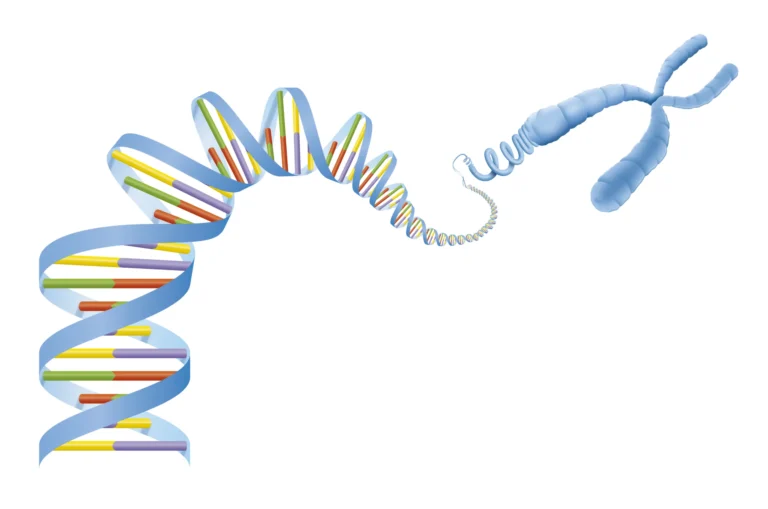Exploring Careers in the Pharmacogenomics Field
Pharmacogenomics is a rapidly growing field that focuses on how a person’s genetic makeup influences their response to medications. This dynamic field offers diverse career opportunities for individuals interested in precision medicine, personalized healthcare, and genetic testing.
With advancements in genomics and the increasing adoption of pharmacogenomic testing, the demand for professionals in the pharmacogenomics industry is on the rise. The field is projected to grow by 10% over the next five years, presenting exciting job prospects and competitive salaries.
Pursuing a career in pharmacogenomics can lead to various roles such as geneticists, data scientists, clinical genomics curators, and more. By earning a higher education degree in pharmacogenomics, aspiring professionals can unlock a world of genomics career opportunities in the pharmaceutical industry and beyond.

Key Takeaways in Careers in the Pharmacogenomics Field:
- Careers in pharmacogenomics offer diverse opportunities in precision medicine, personalized healthcare, and genetic testing.
- The field of pharmacogenomics is projected to grow by 10% in the next five years, providing increased job prospects and higher salaries.
- Earning a higher education degree in pharmacogenomics opens doors to roles such as geneticists, data scientists, clinical genomics curators, and more.
- The pharmaceutical industry offers a range of genomics career opportunities for professionals with expertise in pharmacogenomics.
- Stay updated with the latest advancements and research in pharmacogenomics to excel in this rapidly evolving field.
The Importance of Pharmacogenomics in Healthcare
Pharmacogenomics is a vital component of personalized medicine, revolutionizing the way healthcare providers approach treatment plans. By analyzing an individual’s genetic makeup, pharmacogenomic testing enables healthcare professionals to gain insights into how patients are likely to respond to specific medications.
Through an understanding of an individual’s genetic variations, healthcare providers can develop personalized treatment plans that optimize patient outcomes while minimizing adverse effects. This precision approach to medication therapy is transforming healthcare, paving the way for improved patient care and better treatment outcomes.
With the advancement of pharmacogenomic testing and its integration into clinical practice, the demand for professionals specialized in pharmacogenomics is on the rise. These professionals play a critical role in interpreting genetic data and translating it into actionable insights for personalized medication therapy.
Benefits of Pharmacogenomics in Healthcare:
- Improved accuracy in medication selection for individual patients
- Identification of potential drug interactions or adverse reactions based on genetic markers
- Optimized dosage and treatment plans to achieve desired therapeutic effects
- More efficient management of chronic conditions through personalized medicine
“Pharmacogenomic testing allows healthcare providers to take a patient-centric approach to medication therapy, tailoring treatments based on an individual’s genetic profile.”
As pharmacogenomic testing becomes more accessible and affordable, healthcare providers across various specialties are incorporating it into their practice. This increased adoption of pharmacogenomics creates a growing demand for professionals with expertise in this field.
Opportunities in Pharmacogenomics
A career in pharmacogenomics offers exciting opportunities across different sectors, including:
| Pharmacogenomics Careers | Industry | Educational Institutions |
|---|---|---|
| Genetic Counselor | Pharmaceutical Industry | Research Universities |
| Pharmacogenomic Scientist | Genetic Testing Laboratories | Pharmacy Schools |
| Clinical Genomics Specialist | Healthcare Institutions | Medical Centers |
Pharmacogenomics careers offer a unique blend of genetics, pharmacology, and healthcare, providing professionals with substantial opportunities for growth and specialization.
In the next section, we will explore the education and training required to pursue a career in pharmacogenomics.
Education and Training in Pharmacogenomics
To pursue a career in pharmacogenomics, individuals can consider obtaining a master’s degree in the field. Universities such as the University of Cincinnati offer online programs that provide comprehensive education in pharmacogenomics and personalized healthcare. These programs cover a range of topics, including pharmaceutical biotechnology, drug development, genetics, and more. Graduates of these programs can explore diverse career paths, including genetic counseling careers, genetic research careers, and other roles in the pharmaceutical industry.
| Course | Description |
|---|---|
| Introduction to Pharmacogenomics | An overview of the field of pharmacogenomics, including its history, principles, and applications. |
| Pharmacogenetics and Drug Response | Exploration of the genetic factors that influence drug response and how this information can be applied in clinical practice. |
| Pharmaceutical Biotechnology | An examination of the biotechnological processes used in drug development, including genetic engineering and recombinant DNA technology. |
| Genomic Medicine in Practice | Practical applications of pharmacogenomics in healthcare settings and the integration of genomic information into patient care. |
| Research Methods in Pharmacogenomics | An introduction to the research methods and techniques used in pharmacogenomic studies and clinical trials. |
Benefits of a Pharmacogenomics Master’s Degree
“A pharmacogenomics master’s degree equips individuals with the knowledge and skills necessary to excel in careers related to genetic counseling, genetic research, and various roles in the pharmaceutical industry.” – Dr. Sarah Johnson, Director of Pharmacogenomics, University of Cincinnati
Industry Collaboration in Pharmacogenomics
Universities and pharmaceutical companies are joining forces to promote industry collaborations in the field of pharmacogenomics. These partnerships aim to provide students with valuable hands-on experience through research internships and pharmacogenetic testing programs. By working closely with industry experts, students gain practical insights into the real-world applications of pharmacogenomics and enhance their career prospects.
Genomic Testing Programs:
One example of an industry collaboration in pharmacogenomics is the partnership between the University of Minnesota College of Pharmacy and Kailos Genetics. Together, they have established a pharmacogenetic testing and internship program. This program allows students to actively participate in genetic testing processes, gaining practical experience in pharmacogenomic testing techniques.
Research Internships:
Research internships provide students with opportunities to work alongside professionals in the field of pharmacogenomics. These internships offer valuable exposure to ongoing research projects, data analysis, and laboratory techniques. Students can apply their theoretical knowledge and develop critical skills, preparing them for future careers in the industry.
Benefits of Industry Collaboration
Collaborations between academia and industry in pharmacogenomics offer several benefits:
- Practical experience: Students gain hands-on experience in pharmacogenomic testing and research, enhancing their skill set and employability.
- Real-world application: Industry collaborations provide students with opportunities to apply their knowledge and skills in real-world settings, preparing them for the challenges of the field.
- Networking: Collaboration with professionals in the industry opens doors to valuable networking opportunities, increasing students’ chances of securing employment after graduation.
Future Perspectives
As industry collaborations in pharmacogenomics continue to grow, the field is expected to witness significant advancements. Through these collaborations, students’ understanding of pharmacogenomics will deepen, leading to further innovations and discoveries in personalized medicine.
| Benefits of Industry Collaboration in Pharmacogenomics | Examples of Industry Collaboration Programs |
|---|---|
| Invaluable practical experience for students | University of Minnesota College of Pharmacy and Kailos Genetics pharmacogenetic testing and internship program |
| Opportunities for real-world application of knowledge | Various research internships in pharmacogenomics offered by universities and pharmaceutical companies |
| Enhanced networking prospects for students |
Accelerated Programs in Pharmacogenomics
For students looking to fast-track their career in pharmacogenomics, there are accelerated programs that offer the opportunity to earn both a bachelor’s and master’s degree in a shorter timeframe. These programs provide a streamlined pathway, allowing qualified students to complete their undergraduate and graduate degrees in just over four years.
One example of such a program is the 3+1 program offered at Western New England University. Through this program, students can combine coursework and practical experiences to gain a comprehensive understanding of pharmacogenomics and graduate with both degrees in an accelerated timeframe. This not only enables students to enter the field more quickly but also helps them save on time and tuition expenses.
By enrolling in accelerated pharmacogenomics programs, students can dive deeper into the field, gaining the necessary knowledge and skills to succeed in their careers. These programs typically offer a rigorous curriculum that covers key topics in pharmacogenomics, including genetics, drug development, and personalized healthcare.
It is important to note that while accelerated programs provide an expedited path to earning a degree, they do require a higher level of commitment and dedication. Students in these programs often have a heavier workload and must balance their academic responsibilities with practical experiences and research opportunities.
However, the benefits of accelerated programs in pharmacogenomics are worth considering. They offer a unique opportunity to gain a competitive edge in the job market and embark on a rewarding career in this rapidly growing field.
Benefits of Accelerated Programs in Pharmacogenomics
- Time-saving: Accelerated programs allow students to complete their degrees in a shorter timeframe, saving them valuable time and helping them enter the job market sooner.
- Cost-effective: By reducing the duration of the program, accelerated programs also help students save on tuition costs, making higher education in pharmacogenomics more accessible.
- Integration of theory and practice: These programs often combine coursework with practical experiences, enabling students to apply their knowledge in real-world settings and gain hands-on skills that are highly valued by employers.
- Competitive advantage: Graduates of accelerated programs in pharmacogenomics have a competitive edge in the job market, as they have acquired a comprehensive education in a shorter timeframe and demonstrated their commitment and ability to excel in an intensive program.
“Accelerated programs in pharmacogenomics offer ambitious students a unique pathway to kickstart their careers in this rapidly evolving field. By combining coursework, practical experiences, and a focused curriculum, these programs prepare graduates to contribute to the ever-growing field of pharmacogenomics.” – Dr. Lisa Thompson, Dean of the School of Pharmacy at Western New England University
Career Opportunities in Pharmacogenomics
Graduates with a degree in pharmacogenomics have a wide range of career options in the field. The growing demand for professionals who can apply pharmacogenomics principles in clinical settings and research opens up exciting avenues for career growth and advancement. Whether it’s working as a genetic sales consultant, clinical curator, medical scientist, or research project manager, individuals with expertise in pharmacogenomics play a vital role in shaping the future of precision medicine.
One potential career path in pharmacogenomics is pursuing a role as a genetic sales consultant. In this position, professionals collaborate with healthcare providers, laboratories, and pharmaceutical companies to promote and sell genetic testing services related to pharmacogenomics. They help tailor medication therapy based on individual genetic profiles, maximizing treatment effectiveness and minimizing adverse effects.
Another rewarding career option is becoming a clinical curator. Clinical curators work in genomics laboratories or healthcare institutions to analyze patient data and genetic information to guide treatment decisions. They play a crucial role in interpreting genetic test results and providing personalized medication recommendations, ensuring that patients receive the most suitable and effective therapies.
Medical scientists specializing in pharmacogenomics are at the forefront of research and innovation. They conduct studies to further explore the relationship between genetics and medication response. Their work contributes to the development of new drugs, therapies, and treatment protocols, ultimately improving patient outcomes. By leveraging their knowledge of genomics, these scientists play a critical role in advancing precision medicine.
Research project managers in the field of pharmacogenomics oversee the planning and execution of research studies related to genetic variations and drug responses. They collaborate with interdisciplinary teams, manage resources, and ensure that projects are conducted in compliance with ethical standards and regulatory guidelines. Research project managers play a pivotal role in translating research findings into clinical applications and driving advancements in personalized medicine.
Furthermore, career opportunities in pharmaceutical sales and genetic testing laboratories are also available to individuals with expertise in pharmacogenomics. With increasing awareness and implementation of pharmacogenetic testing, pharmaceutical companies and genetic testing laboratories are seeking professionals who can effectively communicate and market genetic-based products and services.
As the field of pharmacogenomics continues to expand and evolve, so do the career prospects. Professionals in this field have the opportunity to make a significant impact on patient care and contribute to the advancement of personalized medicine. With their specialized knowledge and skills, pharmacogenomics experts are at the forefront of revolutionizing healthcare, one genetic profile at a time.
Skills and Qualifications for Pharmacogenomics Careers
To excel in pharmacogenomics careers, individuals need a strong foundation in genetics, pharmacology, and relevant scientific principles. Understanding the complexities of gene-drug interactions is essential in this field, and professionals must possess the skills necessary to interpret and apply pharmacogenomic information effectively.
Here are some key skills and qualifications that are valuable for pharmacogenomics careers:
- Data Analysis: Proficiency in data analysis is crucial for interpreting genomic data and understanding how it relates to medication response. This involves the ability to analyze large datasets, identify patterns, and draw meaningful insights from the data.
- Laboratory Techniques: A solid understanding of laboratory techniques is essential for pharmacogenomics professionals. This includes knowledge of molecular biology techniques, DNA sequencing, genotyping, and other laboratory procedures used in pharmacogenomic research and testing.
- Critical Thinking: The ability to think critically and problem-solve is vital in pharmacogenomics. Professionals must be able to analyze complex genetic information, consider multiple factors, and make informed decisions regarding medication therapy based on the patient’s genetic profile.
- Advanced Degrees: Employers often prefer candidates with advanced degrees in pharmacogenomics or related fields. These may include master’s or doctoral degrees in pharmacogenomics, pharmacology, genetics, or other relevant disciplines.
- Research or Clinical Experience: Experience in research or clinical settings is highly valued in pharmacogenomics careers. This can include involvement in pharmacogenomic research projects, internships, or practical experience in clinical settings where pharmacogenomic testing is performed.
- Certifications: Certified genetic counselors and pharmacists may have an advantage in certain roles within the field. These certifications demonstrate specialized knowledge and expertise in genetics and pharmacology, respectively.
Gaining expertise in these areas can enhance your qualifications for pharmacogenomics jobs and increase your competitiveness in the field. By acquiring the necessary skills and qualifications, you can position yourself for success in the evolving field of pharmacogenomics.

The Future of Pharmacogenomics
The field of pharmacogenomics is constantly evolving, driven by advancements in technology, research, and data analysis. These advancements are paving the way for a future that holds great potential for personalized medicine and improved patient outcomes.
As the costs of genetic testing continue to decrease, more and more individuals will have access to information about their genetic variations. This knowledge will play a crucial role in understanding how different individuals respond to medications and the potential risks of adverse reactions.
With a deeper understanding of the impact of genetic variations on medication response, healthcare professionals will be able to develop more tailored and personalized treatment plans. This approach will optimize the effectiveness of medications while minimizing the risk of adverse effects.
Furthermore, the integration of pharmacogenomic approaches into clinical practice will become more widespread. Physicians and pharmacists will use genetic information to guide medication prescribing decisions, ensuring that patients receive the most appropriate and effective treatments.
In the future, we can anticipate even greater breakthroughs in personalized medicine through pharmacogenomics. Ongoing research and innovation will continue to expand our understanding of how genetic variations influence medication response and guide treatment decisions.
Advancements in technology, such as high-throughput sequencing and data analysis tools, will enable healthcare professionals to gather and analyze vast amounts of genetic data quickly and efficiently. This will further enhance our ability to personalize treatments and improve patient outcomes.
Ultimately, the future of pharmacogenomics holds immense promise for transforming healthcare, leading to more precise and individualized treatment plans.
Pursuing a Career in Pharmacogenomics
If you are interested in a career in pharmacogenomics, there are several educational and professional pathways you can explore to establish yourself in this exciting field. By researching universities that offer pharmacogenomics programs at the master’s and doctoral levels, you can gain valuable insights into the curriculum and the various career opportunities associated with each program.
Staying up-to-date with the latest advancements in the field is crucial for success in pharmacogenomics. Engaging with professional organizations, attending conferences, and reading relevant publications can provide you with the knowledge and resources necessary to make informed decisions about your career path.
Master’s Programs in Pharmacogenomics
Obtaining a master’s degree in pharmacogenomics is an excellent way to gain specialized knowledge in the field and enhance your job prospects. Here are some prominent universities that offer pharmacogenomics programs:
| University | Program | Website |
|---|---|---|
| University of Cincinnati | Master of Science in Pharmacogenomics and Personalized Healthcare | https://www.uc.edu |
| University of Washington | Master of Science in Pharmacogenomics and Individualized Medicine | https://www.washington.edu |
| University of Maryland, Baltimore | Master of Science in Pharmacogenomics | https://www.umaryland.edu |
Doctoral Programs in Pharmacogenomics
If you wish to pursue an advanced research career or become a leader in the field of pharmacogenomics, a doctoral program may be the right choice for you. Here are a few universities that offer doctoral programs in pharmacogenomics:
| University | Program | Website |
|---|---|---|
| University of Florida | Doctor of Philosophy in Pharmacogenomics | https://www.ufl.edu |
| University of California, San Francisco | Ph.D. in Biomedical Sciences with a Pharmacogenomics Focus | https://www.ucsf.edu |
| University of Michigan | Doctorate in Pharmacological Sciences with a Focus in Pharmacogenomics | https://www.umich.edu |
By pursuing higher education in pharmacogenomics, you can gain the necessary knowledge and skills to excel in this rapidly expanding field. Whether you choose a master’s or doctoral program, it is essential to select a program that aligns with your career goals and provides comprehensive education in pharmacogenomics.
Remember that the field of pharmacogenomics is continually evolving and requires professionals to stay informed about the latest advancements. Emphasize lifelong learning and professional development to remain competitive in the pharmacogenomics job market.
Challenges and Opportunities in Pharmacogenomics
While pharmacogenomics offers numerous benefits, the field also faces a set of challenges and ethical considerations. These challenges include ensuring data privacy, protecting patient information, and making pharmacogenomic data accessible for research and clinical practice.
Ensuring Data Privacy: Data privacy in pharmacogenomics is of utmost importance, as it involves sensitive genetic information. Striking the delicate balance between making data accessible for research and ensuring individuals’ privacy rights can be an ongoing challenge.
Ethical Considerations: With the power to influence medical decisions based on genetic information, ethical considerations are paramount in pharmacogenomics. Issues such as the appropriate use of genetic testing, informed consent, and potential discrimination based on genetic profiles need to be carefully addressed.
The Incorporation of Pharmacogenomic Principles: Integrating pharmacogenomic principles into healthcare systems can be a complex process. It requires the education and training of healthcare professionals to effectively utilize genetic information in medication decision-making. This presents an opportunity for growth and advancement in the field, both in terms of curriculum development and specialized training programs.
Opportunities for Advancement: As pharmacogenomics continues to evolve, there are abundant opportunities for professionals in the field to contribute to research and innovation. Collaborative efforts among researchers, healthcare providers, and technology companies can lead to advancements in personalized medicine and improved patient outcomes.
Addressing these challenges and capitalizing on the opportunities in pharmacogenomics requires a multi-faceted approach that involves collaboration, regulatory frameworks, and ongoing ethical discourse. By navigating these challenges and seizing opportunities, the field of pharmacogenomics can continue to progress and positively impact patient care.
Conclusion
Pharmacogenomics is revolutionizing patient care and paving the way for personalized medicine. This field holds immense potential for improving treatment approaches and optimizing patient outcomes. With the increasing demand for professionals in pharmacogenomics, individuals who choose careers in this field have the opportunity to make a significant impact.
To thrive in the exciting and evolving field of pharmacogenomics, it is crucial to stay abreast of the latest research and advancements. Continuous learning and staying informed about emerging technologies and breakthroughs will enable professionals to provide the best possible care to patients. Acquiring the necessary skills and qualifications through education and training programs is also essential for success in this rapidly growing field.
Additionally, seeking opportunities for hands-on experience, such as internships and collaborations with industry partners, can provide valuable real-world insights and enhance career prospects in pharmacogenomics. By combining knowledge, practical skills, and a passion for improving patient care, individuals can position themselves for success in this dynamic field.
In conclusion, pharmacogenomics offers an exciting and rewarding career path for those passionate about personalized medicine. By embracing the potential of this field, professionals can contribute to advancing treatment approaches and improving patient care. With a commitment to continuous learning, acquiring the necessary skills, and gaining practical experience, individuals can thrive in the ever-evolving world of pharmacogenomics.
FAQ
What is pharmacogenomics?
Pharmacogenomics is the field that studies how a person’s genetic makeup influences their response to medications.
What are some career opportunities in pharmacogenomics?
Career opportunities in pharmacogenomics include roles such as geneticists, data scientists, clinical genomics curators, and more.
How much is the field of pharmacogenomics expected to grow?
The field of pharmacogenomics is expected to grow by 10% in the next five years, offering increased job opportunities and higher salaries.
How can pursuing a higher level of education in pharmacogenomics benefit career prospects?
Pursuing a higher level of education in pharmacogenomics can open doors to diverse and exciting careers in the field.
How does pharmacogenomics contribute to personalized medicine?
Pharmacogenomics analyzes a patient’s genetic makeup to determine how they are likely to respond to different medications, enabling the development of precise and effective treatment plans.
What educational programs are available in pharmacogenomics?
Universities offer online programs that provide comprehensive education in pharmacogenomics, covering topics such as pharmaceutical biotechnology, drug development, and genetics.
Are there opportunities for hands-on experience in pharmacogenomics?
Universities and pharmaceutical companies collaborate to provide research internships and testing programs in pharmacogenomics.
Are there accelerated programs available for pharmacogenomics?
Some universities offer accelerated programs that allow students to earn both a bachelor’s and master’s degree in pharmacogenomics in a shorter timeframe.
What career paths can graduates with a degree in pharmacogenomics pursue?
Graduates with a degree in pharmacogenomics can pursue careers as genetic sales consultants, clinical curators, medical scientists, and research project managers, among other roles.
What skills and qualifications are required for pharmacogenomics careers?
Candidates for pharmacogenomics careers need a strong foundation in genetics, pharmacology, data analysis, laboratory techniques, and critical thinking. Advanced degrees and experience in research or clinical settings are also sought after.
What does the future of pharmacogenomics look like?
The field of pharmacogenomics is expected to expand further with ongoing advancements in technology, research, and data analysis, leading to improved patient outcomes and more personalized treatment plans.
How can individuals pursue a career in pharmacogenomics?
Individuals interested in a career in pharmacogenomics can explore educational programs and stay up-to-date with advancements in the field through professional organizations, conferences, and publications.
What are the challenges and opportunities in pharmacogenomics?
Challenges in pharmacogenomics include data privacy and the incorporation of pharmacogenomic principles into healthcare systems. However, these challenges present opportunities for growth and advancement in the field.






